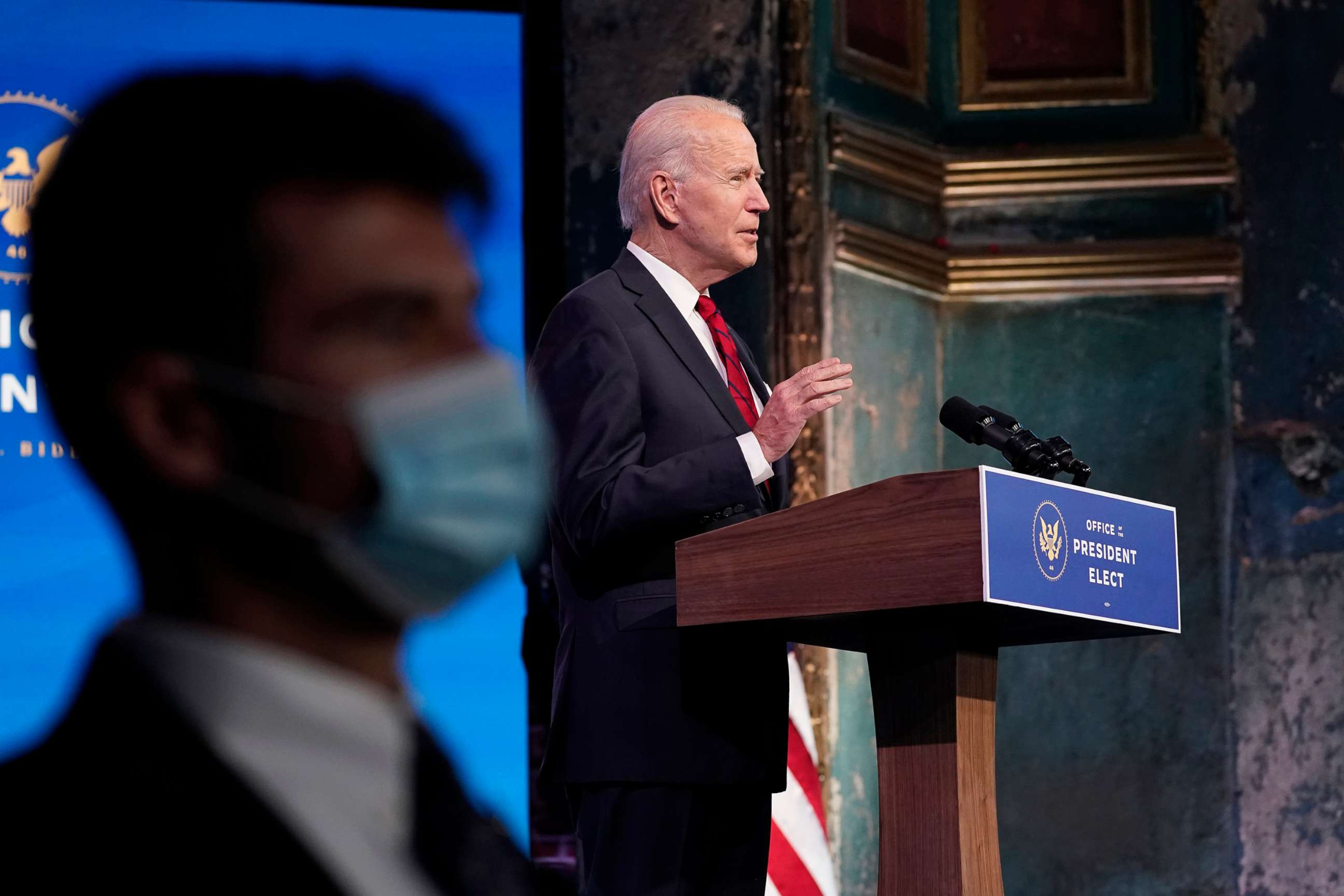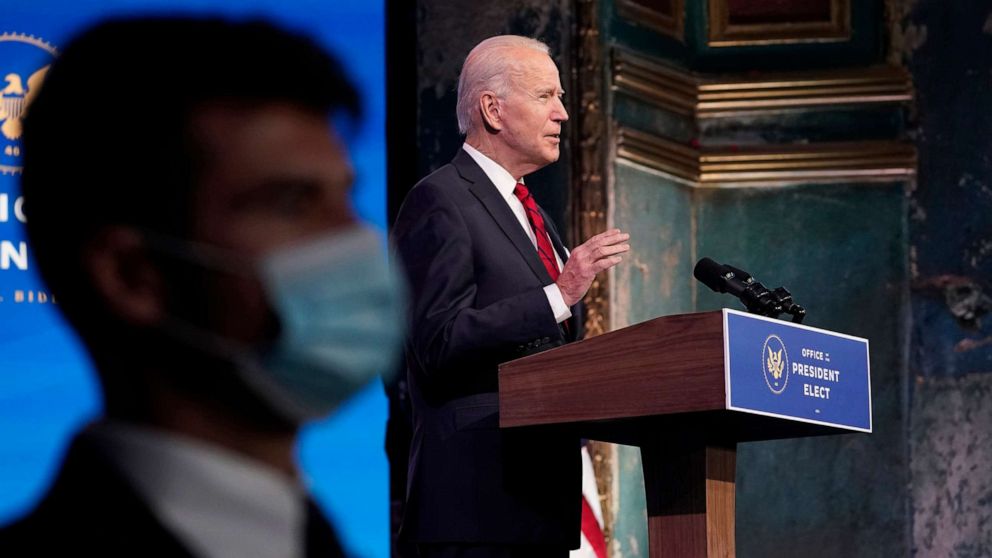What to know about Joe Biden's pathway to citizenship immigration plan
President-elect Joe Biden will send to Congress an extensive immigration reform bill that includes an eight-year pathway to citizenship on Wednesday, following through on a long-standing campaign pledge to move on immigration on day one of a Biden presidency.
The new details of Biden’s legislation were first reported by The Washington Post, and confirmed by Biden transition officials.
Biden will send to Congress on Wednesday a policy that will include an eight-year pathway to citizenship for immigrants without legal status, and expand admissions for refugees to the country.
He would also take a different approach from the Trump administration’s border wall for enforcement, investing in technology at the border instead.

Biden, who worked as vice president on addressing the root causes of migration from Central American countries, will seek to do the same with his new legislation, the officials confirmed.
The plan tracks closely with the approach to immigration Biden discussed on the campaign trail, but expands on how Biden will structure the comprehensive overhaul.
For those living in the U.S. without legal status as of Jan. 1, Biden’s planned pathway would allow for five years of temporary status, and the opportunity to earn a green card upon meeting requirements like paying taxes, and passing a background check. Eligibility to apply for citizenship would follow three years later.
Vice President-elect Kamala Harris also spoke about the policy in a recent interview, previewing the eight-year pathway to citizenship, along with expanding protections for DREAMers and DACA recipients.
“These are some of the things that we're going to do on our immigration bill, and we believe it is a smarter and a more humane way of approaching immigration,” said Harris in an interview with Univision last week.
Biden had long previewed his plan to send a bill overhauling the immigration system to Congress on the first day of his administration -- a significant move that places a priority on addressing the issue that the Obama administration was criticized for during their time in office.
“[W]e made a mistake. It took too long to get it right,” Biden said of the Obama Administration's record on immigration, during the Oct. 23 presidential debate.
While Democrats will hold a slim majority in both chambers in Congress during the start of Biden’s presidency, the proposal would still need to earn support from some Republicans in the Senate to pass into law -- testing Biden’s campaign trail pitch that he could garner bipartisan support for his legislative efforts as president.
Biden’s immigration push will be introduced as the country continues to grapple with the COVID-19 pandemic, and added to the ambitious legislative efforts Biden’s administration is already undertaking to get a handle on the virus.
Biden unveiled a nearly $2 trillion COVID rescue plan last week to offer immediate relief to families struggling amid the continued economic downturn due to COVID.
Introducing the legislation is just one part of the aggressive start Biden is planning for the beginning of his administration. Over his first 10 days in office, Biden also plans to take executive action on a number of additional policy issues, including climate change, racial inequality and criminal justice reform.
On Inauguration Day alone, Biden will sign executive orders on extending the existing pause on student loan payments and interest, re-join the Paris Climate Agreement, and reverse the Trump administration’s travel “ban” on predominantly Muslim countries, in addition to putting in place a mask mandate on federal property amid the COVID-19 pandemic.




